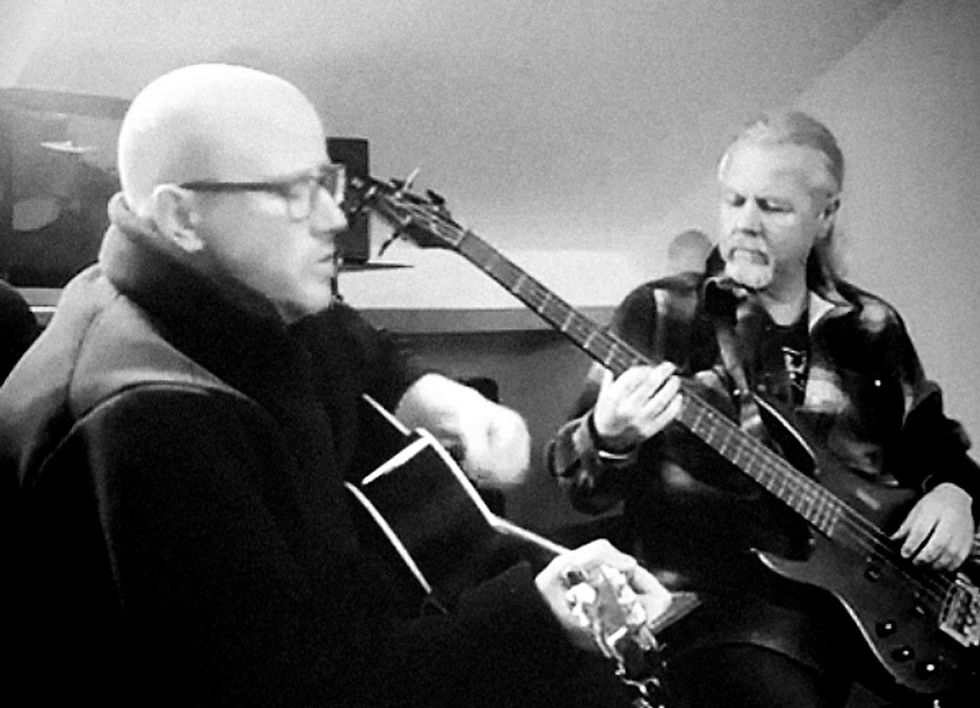Creative rebellion shaped Ireland as we know it
- Phil MacGiolla Bháin

- Apr 20, 2025
- 3 min read
Updated: Apr 21, 2025

TWENTY years ago, this year, my first stage play premiered here in Dún na nGall. I had written The Flight of the Earls the previous year under the tutelage of a very fine writer from Béal Feirste. Despite the historic title, the play was set in Donegal at the turn of the new millennium and the central character—Peadar O’Donnell—was the son of a deceased POW.
On the night itself, I was fidgeting and pacing like I hadn’t known since I was a spectator in the maternity ward. As the crowd came into the old Balor Theatre in Ballybofey, there was a familiar face I hadn’t expected. A very senior person in the Republican firmament strode across the foyer and shook my hand. “Another one in the literary wing!” he smiled. In truth, he was making a valid point. Irish Republicanism and creative writing have a long association.
At this time of year—without any big statement—I have a small lapel badge on my clothing. Without the sacrifice of generations before me I wouldn’t be what I am today. That is an Irish citizen with a vote to elect my head of state as laid down by our written constitution.
The Home Rule Act of 1914 offered a tepid version of the current devolution set up in Scotland. The Rising was a putsch against Redmondism and a sliding doors moment for the sovereignty of the Irish people. Quite simply, this polity would not exist without the seismic event of Easter 1916. They were an eclectic bunch to take on the British Empire.
Easter Week was a writer’s rebellion conceived by creative minds. It was performance art that demonstrated to the Irish people that another life was possible. It is, therefore, fitting that an actor fired some of the first shots in the Rising.
Sean Connolly, an actor in the Abbey Theatre, was treading the board of revolution when they tried to storm Dublin Castle. Performance art that showed the Irish people that living under the British yoke wasn’t the only way it had to be. He was the first insurgent in Easter Week to be killed. His father, Michael, led the Fenians to the battleground at Tallaght during the Fenian Rising in 1867, when he was 11.
In The Wind That Shakes The Barley, director Ken Loach's brilliance comes to the fore as he has Damien (Cillian Muphy) and Dan (Liam Cunningham) sharing a prison cell. Damien is reading a stanza from a poem written on the wall by candlelight, but the final part is missing. Dan finishes the line and tells his cellmate that William Blake wrote the words. He then relates his time in Frongoch, where he learned ‘to read and write and think.’
Although the timescale is not historically accurate—the POWs were only there for six months, not ‘years,’ for example—the artistic license is justified. In that short scene, the Republican prisoners are shown to be determined, thoughtful, self-educating and ready for the next phase of the struggle.
In 1916, Britain was the major power in the world and a military behemoth. The seven signatories of the 1916 Proclamation of the Irish Republic were: Thomas Clarke, Seán MacDiarmada, Thomas MacDonagh, Patrick Pearse, Éamonn Ceannt, James Connolly, and Joseph Plunkett. Two of the seven were born in Britain.
Tom Clarke was born to Irish parents at Hurst Castle near Milford-on-Sea in England. His father, James Clarke, was a sergeant in the British Army.
James Connolly was, of course, born in Edinburgh in the Cowgate, an Irish ghetto that is now a thing of the past. On Easter Monday, the Irishman from Scotland told a comrade to go home because he would be needed later. “We are going out to be slaughtered.”
Perhaps it is fitting to leave the last words to a Republican writer. Playwright and poet Thomas MacDonagh, at his court martial, eloquently stated: “There is not much left to say. The Proclamation of the Irish Republic has been adduced in evidence against me as one of the Signatories. I adhere to every statement in the Proclamation. You think it already a dead and buried letter, but it lives, it lives. From minds alight with Ireland’s vivid intellect it sprang; in hearts aflame with Ireland’s mighty love it was conceived. Such documents do not die.
“We do not profess to represent the mass of the people of Ireland. We stand for the intellect and soul of Ireland...
“Gentlemen, you have sentenced me to death, and I accept your sentence with joy, since it is for Ireland I am to die.”
Phil Mac Giolla Bháin is an author, playwright and journalist based in Donegal. He was a staff reporter and columnist on An Phoblacht for many years. His novel Native Shore, a political thriller with a strong Glasgow Irish theme, is available at Calton Books







Comments